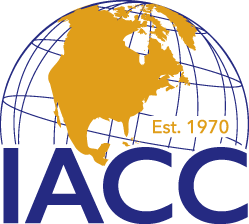
House Votes to Overturn CFPB Small Business Lending Rule
The rule was enacted by the CFPB to increase transparency in small business lending and prevent unlawful discrimination.
The House recently voted 221-202 to nullify a Consumer Financial Protection Bureau rule requiring lenders to disclose credit applications they receive from small businesses, lending decisions and demographic data. Next it heads to the desk of President Joe Biden, who is expected to veto it, according to American Banker.
The resolution (PDF), originally sponsored by U.S. Sen. John Kennedy, R-La., and supported by Democrat and independent senators, passed in the U.S. Senate 53-44 in October. House members used the Congressional Review Act to overturn the rule. The Congressional Review Act allows Congress to reverse certain agency rules within 60 days of their release. U.S. Rep. Roger Williams, R-Texas, led Republicans in the debate on the resolution, stating in a news release, “We must overturn the CFPB’s Small Business Lending Rule to ensure small businesses across America, who are the backbone of our country, have continued access to affordable credit to support and grow our economy. Access to affordable credit is key to ensuring communities across America remain vibrant. Unfortunately, the CFPB’s Small Business Lending Rule undermines the goal of affordable and available credit, which I think we all should share.”
Williams said the rule is overly broad and would require unnecessary collection of data when a small-business owner applies for credit. “The CFPB’s rule is burdensome,” Williams said. “Community banks and credit unions across America already account for a majority of small business lending. They are doing their part. Despite claims from my colleagues across the aisle, this rule doesn’t go after big banks. It will have the biggest impact on the small community financial institutions already operating under the thinnest of margins because of runaway inflation and increased interest rates from the Federal Reserve.”
Williams and members of the House Financial Services Committee also discussed the rule in a Nov. 29 hearing with CFPB Director Rohit Chopra on the bureau’s semiannual report to Congress. The committee’s ranking member, U.S. Rep. Maxine Waters, D-Calif., asked Chopra about the impact of rescinding the small business lending rule. Chopra said it is an important way to prevent discriminatory practices in small business lending and that it has already been done with mortgage loans, adding that the bureau extended the compliance date and exempted some small institutions that do not issue a significant amount of small business loans, according to a summary of the hearing from Brownstein Hyatt Farber Schreck.
Waters opposed the resolution to rescind the rule in remarks on the House floor Dec. 1. “The CFPB rule will allow small businesses to comparison shop between lenders and see how much other small businesses are being charged for their loans,” Waters said. “This price transparency is essential to a competitive and fair marketplace. Make no mistake, Senate Joint Resolution 32 is just another part of Republicans’ relentless attack on the CFPB. They have erroneously claimed that the CFPB is unconstitutional and unaccountable, and have even gone so far as to attempt to eliminate the agency altogether.”
Court Challenges
Meanwhile, two district court cases put enforcing the rule on hold. In Texas, an injunction granted in August means banks do not have to comply with the rule until the U.S. Supreme Court issues its decision in Consumer Financial Protection Bureau v. Community Financial Services Association of America, Limited (CFSA), a case challenging the constitutionality of the bureau’s funding structure that originated in the 5th Circuit.
In September, a U.S. district judge serving in the Eastern District of Kentucky granted a plaintiff’s motion for a preliminary injunction (PDF), effectively putting a halt on the enforcement of the rule.
President's Letter
Benefits of Involvement
By Valerie Invold, IACC President
 I’ve frequently talked about our conferences in my past articles, and I’ve written some about my origin with IACC. My experience is a bit unique. As I think you’re aware, I came up through the ranks on the knee of and then at the behest of my dad. I got involved with IACC in a number of ways, but my passion was ignited at conferences. I believe these gatherings are the best way for you, your successors and your employees to be introduced to our organization and the people in it. Bringing people and showing them the ropes enhances the events and enriches everyone’s experience.
I’ve frequently talked about our conferences in my past articles, and I’ve written some about my origin with IACC. My experience is a bit unique. As I think you’re aware, I came up through the ranks on the knee of and then at the behest of my dad. I got involved with IACC in a number of ways, but my passion was ignited at conferences. I believe these gatherings are the best way for you, your successors and your employees to be introduced to our organization and the people in it. Bringing people and showing them the ropes enhances the events and enriches everyone’s experience.
It is not, however, the only way to be introduced to our organization and the people in it.
The second step I took when getting involved in IACC included joining a bunch of committees. Some of them my dad volun-told me to be on and some I was interested in, but mostly I was eager to help where I could. Not every committee is going to be interesting to everyone! But we do have enough that we can guarantee we’ll find you a home if you’re looking for one.
Being on a committee (or in my case, many committees) did a couple of things for me.
I was able to get to know the people I met at conferences better in the smaller group setting of committees. It surprised me that one of the side benefits was having more opportunities to network with our members. People remember your name when you’re one of five or seven people in a meeting once a month or quarter. You get to know each other in a more relaxed atmosphere and when you do start attending conferences, you have that base to fall back on. You have friends there already.
Being on committees also gave me a better understanding of the organization. I saw how we implemented our mission statement and strategic plan through our Communications Committee. I understood what was involved in planning our conferences by serving on the Convention Planning Committee. As a member of the Education Committee, I helped shape our education, both online and in person. On the Affinity Committee, my associates and I brainstormed partner vendors to help add value for our fellow members. These are just a few of the committees that help run the organization.
If you’re not able to get to our conferences, or you’re not yet able to bring others from your organization, the committees are a really great way to get to know people and to begin involvement. Many of our current and past board members got started in IACC by joining a committee or two, learning about the group before attending in-person meetings.
Besides the personal benefit of being on a committee, IACC can’t actually run without the member participation. The people who volunteer their time and effort are supporting the organization that does so much for our businesses and our industry. It’s crucial work, and we’re lucky to have people who believe in the organization to help move us forward. I believe you get what you put in, and I know that our members who participate get value back tenfold. The relationships we build are invaluable and joining a committee is one great way to build those relationships.
If you are new to IACC, I encourage you to consider participating on a committee and get to know us. If you’re not able to get to our conferences, I encourage you to participate on a committee. If you are able to come to our conferences, I encourage you to participate on a committee!
Send me an email letting me know your interests, and we will figure out which committee will be a good fit. My email is vingold@ commercialcollection.com.
Can’t wait to see you on our next Zoom call!
IACC's Certified Commercial Collector Program
For over 40 years, IACC has promoted excellence through the training and education of commercial collection professionals. IACC believes that collectors must be knowledgeable about a wide variety of issues for their agency to compete effectively in the challenging commercial collection industry. Whether you have new collectors to train or experienced collectors to motivate to higher levels of performance, the IACC Certified Commercial Collector (CCC) program is an affordable tool to help you reach these goals.
IACC is pleased to recognize the following members who have achieved their CCC since October 2023:
- Amy Kincaid – Lamont, Hanley & Associates, Inc.
- Kristen Ganoe – The City of Morgantown
To begin the process of becoming an IACC Certified Commercial Collector, download the application on our website. Questions? Send us an email.

House Financial Services Chair Calls for Public Trust in CFPB to Be Restored
The House Financial Services Committee held a hearing with Consumer Financial Protection Bureau Director Rohit Chopra Nov. 29, starting with opening statements from committee leadership on issues ranging from internal bureau practices to its regulatory and enforcement practices.
“The public’s trust in our financial regulators is shaken,” said U.S. Rep. Patrick McHenry, R-N.C., and chair of the committee in his opening remarks. McHenry referenced a data breach at the CFPB earlier this year, which was caused by a former bureau employee forwarding sensitive financial and supervisory information on consumers and banks to their own email account. Members of Congress demanded answers from the bureau about its investigation into the incident.
McHenry also inquired about Chopra’s role on the board of the Federal Deposit Insurance Corp. and his knowledge related to allegations of “workplace misconduct” under the leadership of Chairman Martin Gruenberg. “This string of scandals has left many—myself included—questioning whether these agencies are up to the task of protecting consumers and ensuring the safety and soundness of our financial system,” McHenry said. “When they’re not dealing with internal mismanagement, the Biden [a]dministration’s supposedly independent financial regulators are busy serving as political actors. Director Chopra, your CFPB is a glaring example of this alarming trend—becoming a hyper-partisan agency doing the bidding of the White House rather than protecting American consumers.”
House Republicans are pushing to rescind the bureau’s small business data collection rulemaking. The Senate already passed a resolution overturning the rule in late October, but the action faces a veto by the White House. Ranking Member of the committee, U.S. Rep. Maxine Waters, D-Calif., said in her opening remarks she opposed the effort to rescind the small business rulemaking, which “would help reduce borrowing costs for small businesses by creating a more transparent, competitive marketplace and combat discriminatory lending practices. I am disappointed that Republicans are moving forward with this anti-small business effort, and I would remind my colleagues that market transparency is a fundamental pillar of free market capitalism and that is exactly what this rule is focused on.”
Waters also touched on the U.S. Supreme Court case on the CFPB’s funding structure, stating it is constitutional and that “gutting the only agency dedicated to protecting our nation’s consumers in the financial marketplace will harm our economy and communities.”

From the Web: Navigating the Flexible Work Landscape
Fortune 500 HR leaders weigh in on how companies can foster employee well-being and productivity in a flexible work environment.
The work landscape is evolving, with remote and hybrid models gaining prominence. However, recent Gallup data suggests that the impact on employee well-being is complex, according to an article from SHRM. In a 2023 Global State of the Workplace Report encompassing over 140 countries, individuals working remotely, either full-time or part-time, reported higher stress and anger compared to their on-site counterparts.
This raises a crucial question for organizational leaders: How can companies foster both well-being and productivity in a flexible work environment? According to findings from Fortune 500 HR leaders, only 27% of chief human resources officers (CHROs) advocating for full flexibility (zero days in the office) believed it positively impacted mental health. In contrast, HR leaders requiring one to five days in the office expressed varying degrees of optimism, with those mandating four to five days showing the highest positive sentiment at 47%.
Interestingly, Gallup’s global data reveals that remote and hybrid employees consistently reported higher engagement levels compared to their on-site counterparts, aligning with increased productivity and performance. Fortune 500 HR leaders echoed this sentiment, with 41% of those with the most flexible policies noting a general increase in productivity over the past year.
This dichotomy presents a conundrum for company leaders. On one hand, full flexibility may jeopardize employee well-being, while on the other, a return to the office could lead to lower engagement and productivity. So, how can organizations navigate this delicate balance?
Gallup’s survey of the U.S. workforce revealed a surprising divide: 50% prefer a traditional “splitter” approach, working 9 a.m. to 5 p.m. with life activities before or after work, while the other 50% lean toward a more integrated “blender” model, alternating between work and life activities throughout the day. Notably, HR leaders consistently underestimated the percentage of workers favoring the “splitter” approach.
This preference matters significantly. When employees are unable to work in their preferred manner, they are more likely to experience disengagement, burnout, and an increased inclination to seek new opportunities, according to the article. SHRM writer Jeremie Brecheisen notes that recognizing and respecting these preferences can contribute to a healthier and more productive work environment.
“To be truly engaged and productive, your employees must thrive in both their work and their life,” Brecheisen wrote. “Organizations that help employees find their version of balance, prioritize their feelings of being cared for, and ensure managers are actually equipped to lead remote and hybrid teams have a good chance of improving both well-being and productivity in our new era of work.”
Get Ready for IACC's 2024 Convention
It’s almost here! Don’t miss the International Association of Commercial Collectors (IACC) conference Jan. 17-19, 2024, at the Royal Palm South Beach in Miami Beach, Florida.
The three-day event will feature educational sessions covering a variety of topics related to commercial collections, plus valuable networking opportunities.
Sessions will dig into hot topics in commercial collections, including compliance, succession planning, strategic mentoring and international collections. Read the full agenda here.
Due to the overwhelming response, our room block is sold out. Rooms are still available at the Royal Palm South Beach Miami at the going rate. There are ample hotel options in the surrounding area to stay at as well. If you have questions, please reach out to iacc@ commercialcollector.com.
New this year: the convention will begin earlier in the day on Wednesday, Jan. 17, to give attendees more time to learn and network. We will also host a special lunch off-site.
The IACC annual convention is a must-attend event for anyone working in the commercial collection industry. The convention offers attendees the chance to learn from experts in the field, network with colleagues, and stay up-to-date on the latest trends and best practices.
A special thank you to this year’s two Diamond-level sponsors Bridge Capital and United Field Chase.
Additional event sponsors include: Caine & Weiner, Franklin O’Brien Legal Services, Yates and Schiller, CRF Solutions, Forwarders List, Gaba Law, JST, Miller Cohen Peterson & Young, Teller Levil & Silvertrust, P.C., Totz Ellison and Totz,American Lawyers Quarterly, Borges & Associates, General Bar, MNS Credit, Taroff & Taitz, Smith Debnam, AW Holdings, CLLA and Proof Technology.
New Member as of December 1, 2023
To learn more about IACC member companies, visit our Member Directory.
Agency Membership:
NCS Commercial Recovery LLC Sarasota, Florida
Employment Screening Tips & Trends
 We spoke with Carmelo Morreale, partner at IACC Affinity Partner company Metrodata Services Inc., to get his take on trends in the employment screening world.
We spoke with Carmelo Morreale, partner at IACC Affinity Partner company Metrodata Services Inc., to get his take on trends in the employment screening world.
What are the challenges commercial collection agencies may experience today with hiring, and how can background checks and other employment screenings help?
Morreale: Background checks can be extremely valuable to collection agencies in light of the various guidelines and mandates that clients push down to the collection agencies. Background screening companies can evaluate those mandates and suggestions and strategically implement them within the collection agencies’ background screening policy.
Background screenings are also a collector’s best friend when it comes to audits. We have been able to spell out Standard Operating Procedures via a company letterhead to demonstrate the exact background checks provided for our clients that are meeting—and often exceeding—client expectations and mandates.
Background checks also weed out issues that may arise with potential company safety issues, which often don’t reach the clients’ awareness but could negatively affect the overall production.
What are other relevant trends you’re seeing in the marketplace?
Morreale: We are seeing more and more collection agencies begin relying on alias searches, which are often mandates from their clients. We are also seeing an increase in verification suite products, such as employment verification, education verification and professional license verification. All of which we can do and adapt to ensure that these products are being completed and verified correctly and effectively. This maximizes the opportunity for accuracy.
Are there any changes related to employment screening on the horizon that commercial collection agencies should know about?
Morreale: As we all know, the federal law that regulates background checks is the Fair Credit Reporting Act. Because this act is very outdated, they
Employment Screening Tips & Trendsare always making amendments to it and suggestions on the state level. Federal governing bodies make changes to it as well.
Also, a growing number of states are enacting “clean slate” laws, which require courts to automatically remove or seal eligible records from a person’s criminal history after they have completed their sentence and a certain amount of time has passed. Michigan and New York are the most recent states to adopt this type of law. More information about implementation is expected to come out later in 2024.
To learn more about Metrodata, visit their website. And visit IACC’s Affinity Partner page to learn more about the program.
Upcoming IACC Events and Education
Collection Laws & Bankruptcy Fundamentals
February 15, 2024 at 12:00pm CDT
Collection Calls & Telephone Techniques Part 1
March 21, 2024 at 11:00am CDT
Collection Calls & Telephone Techniques Part 2
April 18, 2024 at 11:00am CDT
Skiptracing & Cybertracking in the 21st Century
May 22, 2024 at 1:00pm CDT
Additional Topics and dates will be added. Please visit the IACC Events Calendar for the current events and details.

